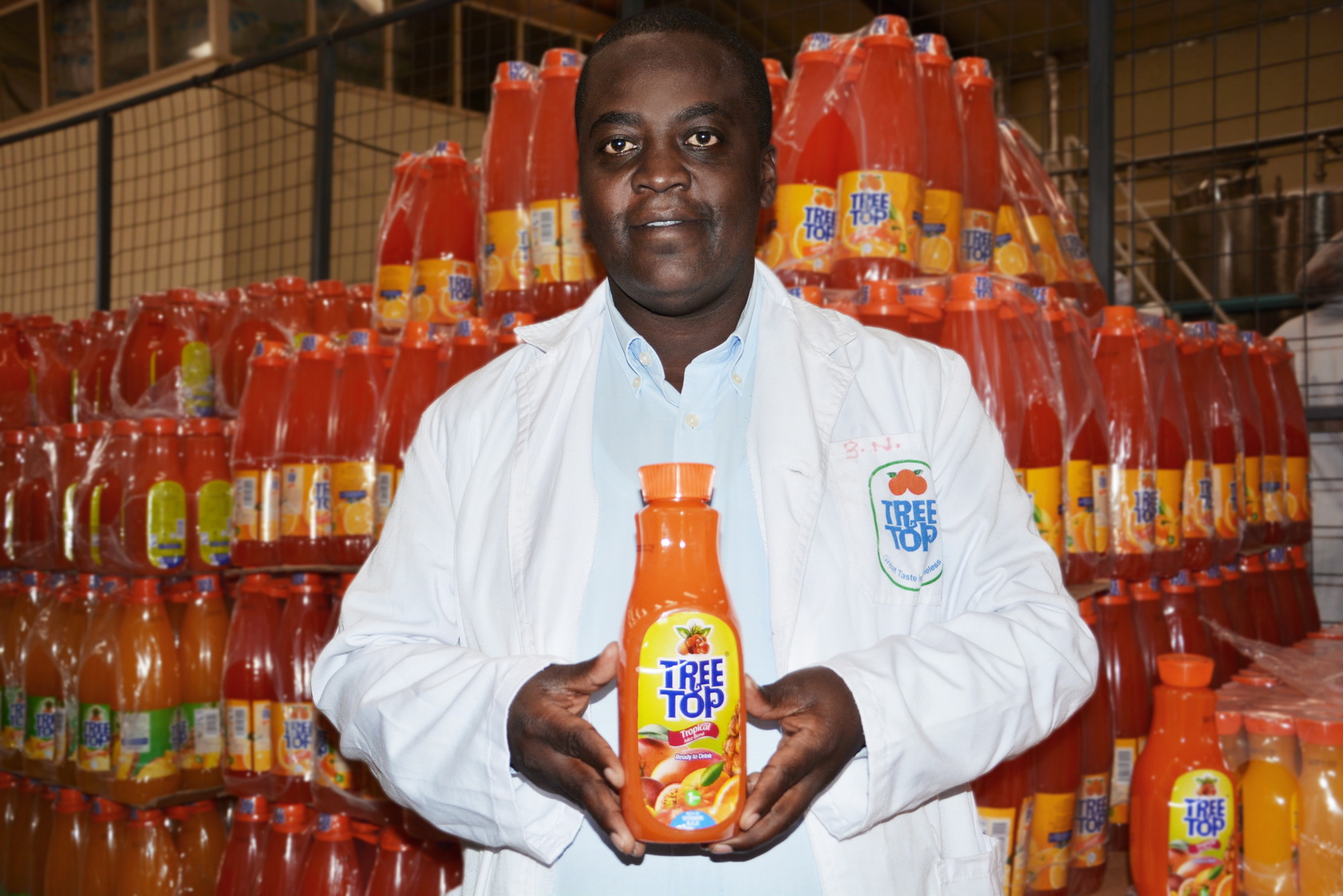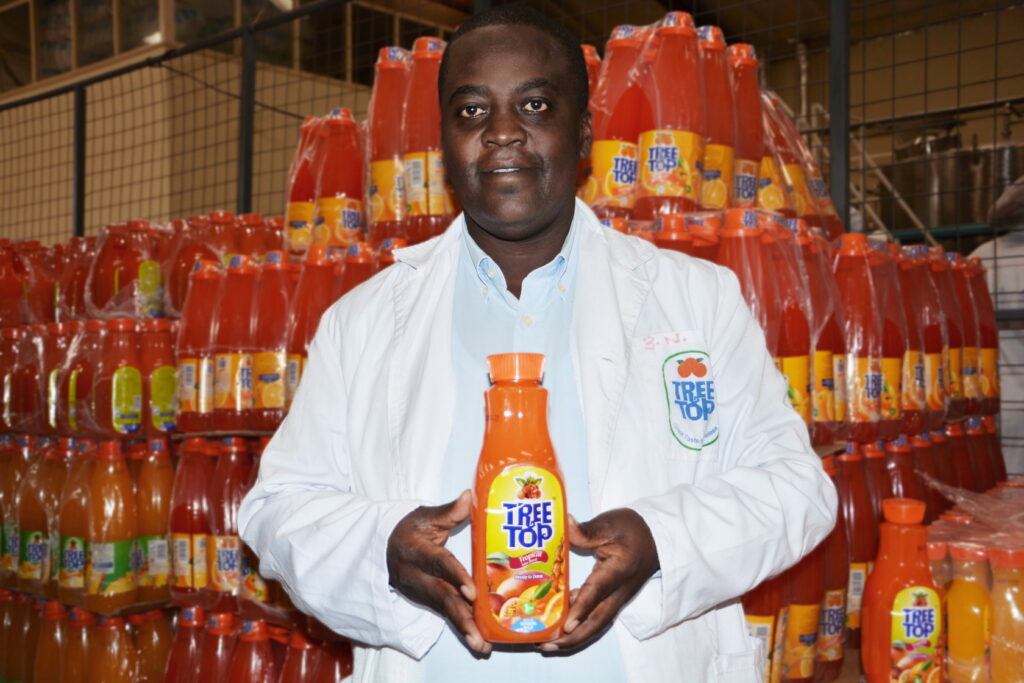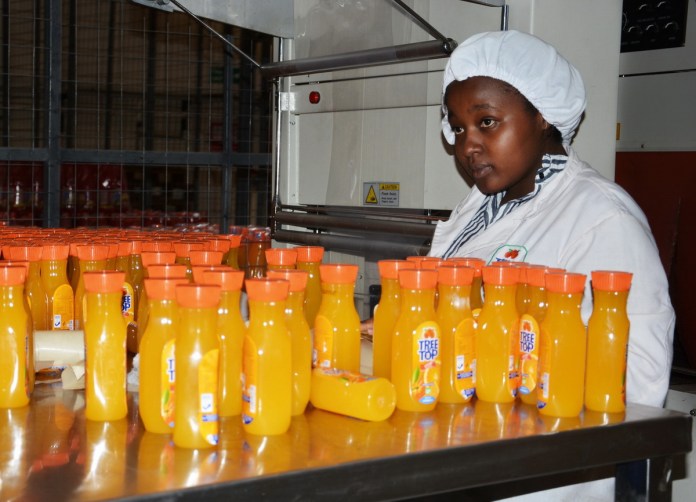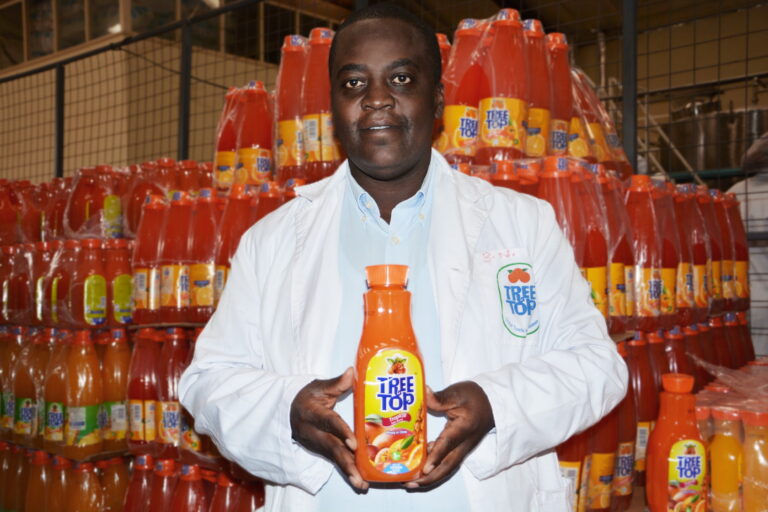
.The instant reaction from his friend was for him to immediately go for a check up to confirm his sanity
.He submitted his resignation letter and walked away from the comfort of a regular source of income and ventured into the musky sea of entrepreneurship where a regular income is not a guarantee for a start-up
.Three years before Njoroge left Del Monte, he had bought the Treetop juice trademark from Unilever in 2011. His motivation to resign was so he could concentrate on reintroducing the brand back into the market under Sky Foods Limited
They say, life begins at 40. For Bernard Njoroge, at 44 years, life started when he left a plum job and plunged into full-time entrepreneurship. Today Njoroge is known as the Treetop man.
When Njoroge confided in one of his closest friends that he was contemplating resigning from a lucrative job at Del Monte, a multi-national firm, the instant reaction from his friend was for him to immediately go for a check up to confirm his sanity. Perhaps his friend thought he was going through mid-life crisis, the time men do irrational things.
To the world, Njoroge seemed to have it all – the money, the influence and the status.
So on the morning of November 2014, perhaps after many sleepless nights, Njoroge made up his mind. He submitted his resignation letter and walked away from the comfort of a regular source of income and ventured into the musky sea of entrepreneurship where a regular income is not a guarantee for a start-up.
Three years before Njoroge left Del Monte, he had bought the Treetop juice trademark from Unilever in 2011. His motivation to resign was so he could concentrate on reintroducing the brand back into the market under Sky Foods Limited.
Exactly seven months after kissing Del Monte goodbye, Treetop was born. Njoroge relaunched the beverage brand back into the Kenyan market in June 2015. He refuses to reveal how much he paid for the Treetop trademark.

Way back in the 90’s, Unilever had phased out the Treetop juice concentrate after it made massive losses. The brand was last sold in Kenyan shops in 1995. After two decades, Njoroge decided to wake a sleeping giant.
For anyone born in the 70’s and 80’s, Treetop was the drink of choice in many homes in Kenya. During family events, the drink was served with a sense of pride. Children knew it was a very special day if their parents brought home Treetop.
Njoroge still had “Treetop hangovers” and he wanted to make money in the process. He got into the same business space with his former employer and set up shop less than three kilometres from Del Monte.
It was not the first time for Njoroge to try his hand in business. Before, he had attempted his hand in business and even burnt his fingers in the process. In 2004, then working for Coca-Cola, Njoroge started a company called African Garden Limited that processed and packaged pickled gherkins (cucumbers). He wound up the company after the supplies from farmers declined because of drought. Unbowed, he started another one for selling sun-dried tomatoes.
As the business grew, more capital was required to sustain the supply and the company had to scout again for the funds to enable expansion.

He admits that very few people thought he was ready for the challenge. Njoroge observes that most commercial banks approach entrepreneurs after they have succeeded not when they are needed at the start up stage. “I think no one likes to associate with risks,” Njoroge quips.
The re-entry of Treetop was made possible through funding from the Industrial and Commercial Development Cooperation (ICDC), a government owned agency that supports small and medium enterprises which exhibit potential growth.
Treetop juice is available as ready to drink and dilute to taste variants. Under the ready to drink category, the drink is available in mango, orange, apple and tropical flavours. The dilute to taste concentrate is available in orange, mango, tropical, pineapple, strawberry and banana flavour that mostly targets the youth.
The juice is packaged in one litre to 20 liters plastic bottles. This is a departure from the “old” Treetop that was sold in glass bottles.
For the mango brands, the fruits are sourced from local farmers while the orange, apple and tropical flavours are imported from Germany.

